Rebecca Scout Nelson is among the most intriguing musicians on today’s historical performance scene, finding her voice in both early music and something beyond
‘There’s something about her story, and the way she appears to move through the world’

Places we are used to hearing early music: churches, concert halls, universities. Places we are not used to hearing early music: dark clubs and the backrooms of Brooklyn bars.
Rebecca Scout Nelson, introspective and soft-spoken, is that rarity who thrives in all of the above locales. The Baroque violinist, singer-songwriter, and composer is emerging as one of the most compelling voices of her time, comfortable playing with leading ensembles in traditional settings — we spoke as she was still bleary-eyed following a tour with the Smithsonian Academy Orchestra — but also in performances of, say, her successful and idiosyncratic Baroque-infused-folk debut album, Do Not Lament, in less traditional quarters.
In many ways, Nelson resembles not so much the glossy products of Juilliard, her alma mater, as the unfettered icons who emerged from Greenwich Village in the 1960s and ’70s. After a Nelson show in New York City last year, historical clarinetist Dominic Giardino, Arizona Early Music’s executive director, was effusive in his praise for her understated talent: “I don’t think I’ve ever encountered an artist who can so effectively communicate empathy and humanity the way Rebecca does. She’s a bit of a 21st-century troubadour.”
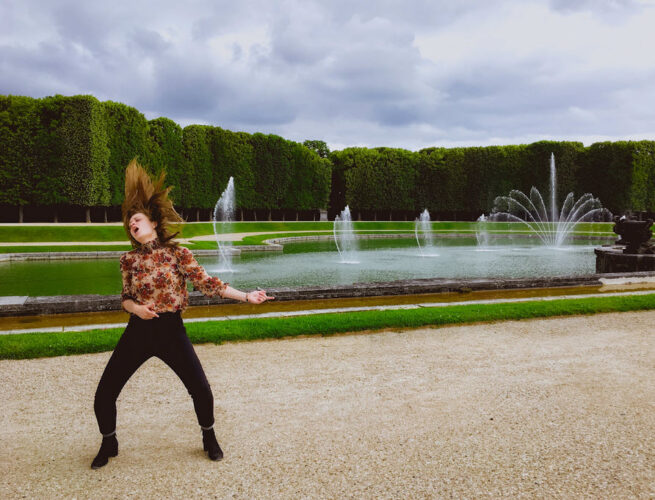
As many of today’s brightest early-music stars are building careers in the public eye, Giardino continues, “Rebecca is playing the most incredible original music in tiny clubs and bars, all the while maintaining an active performance life with great ensembles as just a regular early-music person.
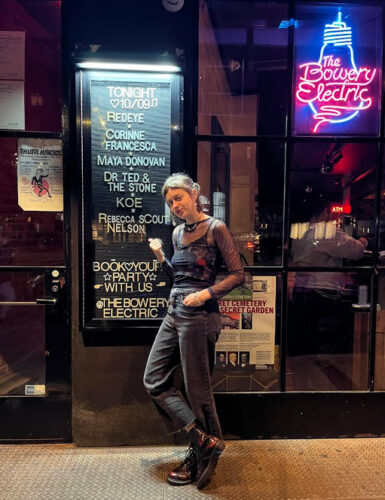
“There’s something about her story, and the way she appears to move through the world, that feels incredibly authentic to the original spirit of early music as a countercultural movement, especially as the scene becomes more and more mainstream.”
For such a quiet person, Nelson is a bold pioneer. It’s this kind of attitude that places her at the vanguard of a new generation seeking to innovate in early music by freeing it from its silo. Her Do Not Lament joins other impossible-to-categorize albums from recent years — Caitlin Hedge’s Stranger, Gail Hernandez Rosa’s My Cup of Tea, Edwin Huizinga’s Fire and Grace, Emi Ferguson’s Amour Cruel, among others — that suggest early music is becoming as much about the field’s “time capsule” approach as about an embrace of aural traditions that tap the deep well of folk and popular styles of music.
To borrow from Duke Ellington, Nelson’s is “music beyond category.” Her singular voice spills from an openness and intuition evident in her temperament — quirks that have proved her most trusted guides.
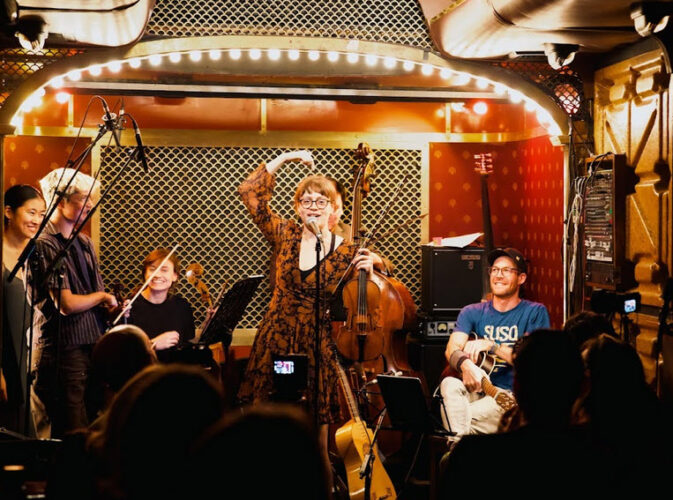
‘Humbling and wonderful to watch’
As a child, Nelson was interested in the double bass. Her parents laid down the law: “I had been told to learn the violin,” Nelson says. “I did everything you were supposed to do in the modern world. I knew I liked violin, but it never quite felt truly my own.”
Discovering period performance changed that. “I would say that, generally in my life, I am kind of wandering. But when something happens, I know it’s the right thing. This was one of those really clear ‘aha’ moments.”
This moment, circa 2014, emerged unexpectedly at the University of Oklahoma, where she was pursuing a graduate degree in modern violin. There, she met plucked string player and classmate Danur Kvilhaug, who shared favorite period recordings, encouraged Nelson to take part in the university’s period-instrument ensemble, and invited her to sing late-night madrigals with friends. “She just fell in love with that world so quickly and adopted [Baroque] style so seamlessly; it was such a humbling and wonderful thing to watch,” Kvilhaug says.
Hearing Mesa Mexicana or star countertenor Philippe Jaroussky sing for the first time, Nelson recalls, made her “wide-eyed. Once I knew this music existed, I knew it was where I needed to go next.”
On she went. After two years freelancing on the Boston early-music scene, she moved to New York City in 2018, where she was accepted into the Juilliard School’s Historical Performance program.
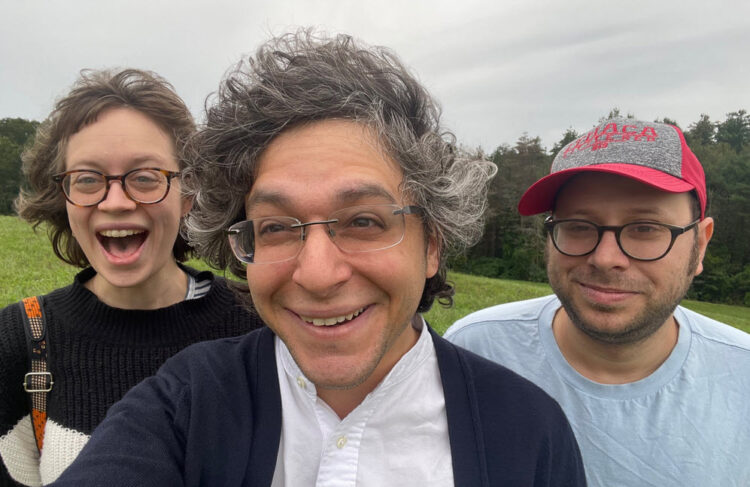
In New York, Nelson discovered her knack for composing — she had already dabbled in songwriting — and was one of the first people invited by keyboardist and composer Nicola Canzano to join Nuova Pratica, an ensemble specializing in crafting new music in Baroque idioms.
“Rebecca has always been kind of special as a person and a musician,” observes Canzano. “And she’s willing to try new things.”
At Juilliard, Nelson recalls, “there were a lot of hard days. Someone told me, my first week living there, that good days in New York are the best; bad days are the absolute worst.” She had needed to leave her younger sister, Carla, then receiving cancer treatment in Boston. She found the hustle and bustle of New York to be stressful: “I was craving nature. I remember the first couple of months, I would dream about trees every night.”
And, in February of her first year at Juilliard, Nelson’s sister passed away. The following year, the COVID pandemic began.
Do Not Lament
Nelson grieved in the only way she could during lockdown: She wrote music.
“My mom always said that, when Carla died, she’d just want people to write music in her honor, to put on what she called ‘Carly concerts’,” Nelson recalls. “My mom’s biggest fear, other than losing her, was that people would forget her and stop celebrating her.”
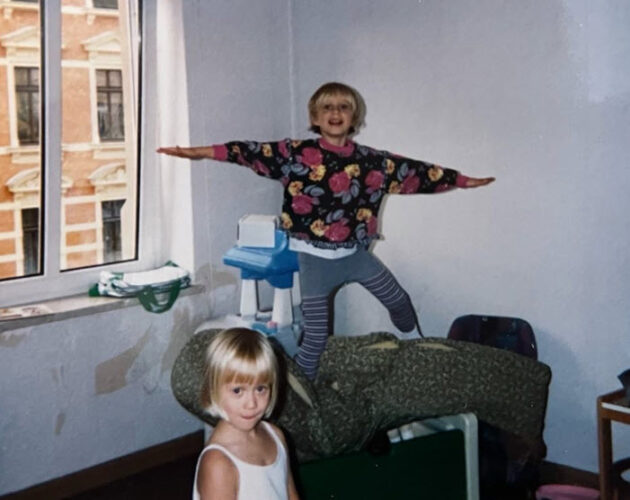
What began as a series of little experiments eventually became a full-length, folk-meets-Baroque album, Do Not Lament, which in turn became the basis for several successful live concert performances when the pandemic subsided. The project honored Carla and offered a vehicle for Nelson to express both her love and sorrow, especially at times when words would fall short.
“It is hard to talk about my sister with my family,” she observes. “Even though we should be bringing her up every day, we just have very different ways of grieving.” Upon hearing the song “Leftover Love,” her mom exclaimed that it expressed “‘exactly what I was thinking.’ We actually had the same thoughts,” Nelson says, “even though we didn’t know how to communicate that necessarily.”
Musically, Nelson’s myriad inspirations for the album largely came by way of Spotify recommendations — in some ways an amalgamation of her feelings from this time, as expressed through an algorithm. In addition to Purcell & Co., the rotation included a lot of modern bluegrass — she and I bonded over our shared affection for the likes of the Punch Brothers, Nickel Creek, Gillian Welch — which she first loved as a child growing up in Germany, where she was born to musician parents.Returning from trips to the U.S., her dad, an orchestral bassist, would bring back folk CD compilations once ubiquitous at Starbucks counters.
Other unexpected childhood affinities resurfaced, too, like Scandinavian folk tunes, reminding her of “one of my earliest childhood memories -– the soundtrack to a Swedish film where a bunch of men were singing this chant thing. The rustic quality just really works for me.” (Nelson’s instrument wish list now includes a Hardanger fiddle, a traditional Nordic violin with sympathetic strings).
The album also allowed her to assemble myriad sounds that brought comfort or enjoyment: “any special nuggets that I loved in Baroque or Renaissance music. I would steal a theme here or a cadence there. I just felt like I had permission to go nuts, to make them my own.” While taking viola da gamba lessons, Nelson recalls stumbling across a cadence in an Ortiz ricercar. “I was obsessed with this cadence. There are certain musical nuggets that are like a drug. I’m playing them over and over again, the harmonies are so yummy, and they just make me want to groove. So I take one and just jam with it, just to see what happens.”
These elements, and the sense of wonder they spring from, are immediately evident in her work. Take, for instance, the album’s title track, “Do Not Lament.” Her cooing voice floats atop a repeating lament bass line (irony intended), replete with little ornaments that simultaneously evoke the pathos of a Baroque tragédie en musique and a melancholy folk ballad.
Songs like “Five Year Plan,” which Nelson describes as a “secret breakup song,” offers more of an upbeat pop-rock feel, its lute introduction soon replaced with drums and electric guitar, imparting a cool, quiet optimism. Most intriguing are the final moments before the song’s postlude — a picardy third whose cadence comes right out of a Lully overture — that somehow feels perfectly at home despite what should be a clash of idioms.
It’s exactly this kind of unbound, effortless creativity that drew the attention of Richie Hawley, who produced Do Not Lament under his Il Pirata label. Hawley first met Nelson while she was an undergrad at Rice University, where he is on the clarinet faculty. The initial encounter began at an open mic at a coffee house, where Nelson was singing and playing guitar, but soon blossomed into a friendship and artistic partnership. When he decided to form a record label, he knew he would have to get her into the booth. “Rebecca was at the top of my list.”
‘She is creative to the point that you have to just slow her down sometimes’
Despite her approaching the project from a difficult emotional space, Hawley describes working with her as being “very, very easy. About 25 percent of the album is still on the cutting room floor, just because of how prolific she is. She is creative to the point that you have to just slow her down sometimes, because she exudes music 24/7.”
Meditations on the Underworld
Currently, Nelson is working on an original cantata, titled Eurydice. Its subject matter is death. And it is a happy cantata — sort of.
When soprano Nicoletta Berry, a former colleague from Juilliard who had been impressed by Do Not Lament, approached Nelson about a commission for New York’s City Lyric Opera (to be performed in March 2025), the pair struck an immediate rapport.
“She is a deep well of inspiration,” Berry says. “She’s really creative, very thoughtful, and a deep thinker. She thinks in a very profound and special way.”
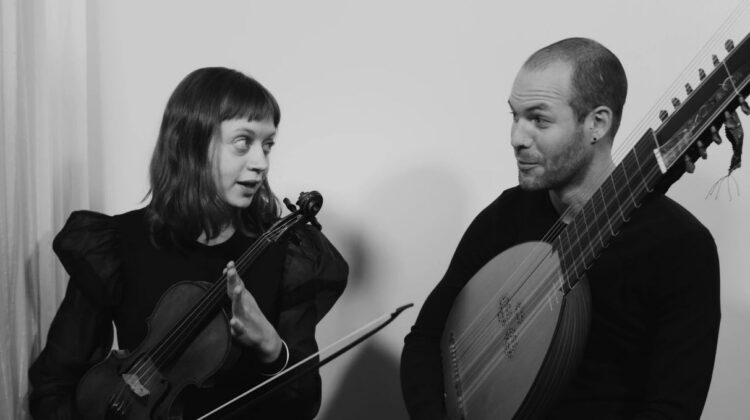
The cantata’s musical language is informed by the Baroque, although Nelson says that it “definitely takes a Rebecca turn — it gets very folksy and groovy. I’m trying to be the most Baroque version of myself as possible, but there will be moments that catapult themselves out of that style.”
Nelson decided that the music would come first, after which “the words are born out of that process.” Alongside Berry, she attempted to find texts and poetry that would suit the musical material but, characteristically, Nelson wanted to take her own tack.
As inspiration, the pair settled on the myth of Orpheus and Eurydice. From Caccini, Monteverdi, and Gluck, to 21st-century retellings by Matthew Aucoin and Sarah Ruhl, this is not exactly untrodden territory for musical settings. Nelson and Berry center the plot on Eurydice’s perspective as she navigates the underworld.Moreover, it took an unexpectedly unique and deeply personal turn.
Drawn mostly from Virgil, the story begins in a familiar way. Shortly after her marriage to Orpheus, Eurydice finds herself pursued by a lustful Aristaeus. Rather than stepping on a venomous snake by accident, however, she chooses to provoke the serpent so as to not fall into the hands of her assailant. She dies.
At first, Eurydice does not realize what has happened. “All she knows is that she has escaped this horrible man, and she’s safe,” says Nelson. But as she recalls the last moments of her life, she plunges into a rage aria cursing Aristaeus, what the composer colorfully describes as a “how-fucking-dare-you aria.” Only then does Eurydice process that she will never again see Orpheus — at least not in the land of the living.
While workshopping the opera, this immediate flash of anger initially struck Berry as abrupt, and she challenged Nelson on the decision. Why wouldn’t the loss of Orpheus be the first thing on her mind? But Nelson was insistent that sorrow followed anger, not the other way around, and Berry says she “got on her wavelength in terms of understanding where she’s coming from. I now see Eurydice in a completely new way, and I’m completely on board.”
Nelson was struck by Virgil’s description of Lethe, the river of amnesia. “I sort of toyed with this idea that, the deeper she ventures into the underworld, the more she forgets about the living world. The plot twist is that, when she crosses the River Styx, it’s actually a beautiful moment of homecoming, where she says ‘Wait, I’ve been here before.’ It’s a strange, magical realization that she’s returning to a place she’s been many times before and that her life was just this curious dream. Perhaps all of us are just visiting this earth for a short time.”
Orpheus arrives to fetch Eurydice, “but maybe she is not sure she wants to go back. Perhaps she chooses to stay. There is always that question — why did he turn around? Maybe it’s because he sensed her uncertainty.” Euridice is again trapped in the underworld, devastated because she has lost Orpheus “this time by choice, not because of violence.”
An ode to Persephone concludes the cantata. Berry and Nelson spent a lot of time exploring Persephone and what she symbolizes, how “she is both life and death. One can’t be without the other, and everything that dies does return home to a safe place, not some dark one. We will all see each other again in some plane or another.”
Nelson had not anticipated when embarking on this project that it would become so deeply personal, but it’s the kind of story she wanted — needed — to tell herself. “Because lots of us have at some point in our lives already experienced Orpheus’ side of the story. I did my Orpheus thing when I made my album, to try and bring Carla back in whatever way I knew how.”
‘The story is, I think, my truth. I’m just using a mythological staple to unpack it.’
“But now, it feels like such an amazing project, imagining Carla’s side. I have the power to give her the best story ever and tell whoever listens, ‘they’re OK, and there’s a rhythm going on that’s larger than us.’ The story is, I think, my truth. I’m just using a mythological staple to unpack it.”
These days, and somewhat unexpectedly, Nelson is in awe of “the amount of joyful stuff that has happened since my album came out. And how Carla is still very much a part of that.”
She has recently moved back to the Boston area, feeling more at ease away from the noise of New York City, and finding solace among the trees that once occupied her dreams. In August, she married Cullen O’Neil, a Baroque cellist and composer whom she met at Juilliard. They cohabitate with their cat, Momo, named after the novel by Michael Ende. Nelson is playing plenty and writing music “from a place of pure excitement now.” She also feels comfortable with herself in ways she never has before.
“I feel like I’ve been cruising down this happiness trail. Whereas Do Not Lament seemed like the Rebecca that was completely in the dark, in retrospect, it feels crazy how much was leading me here, towards a lot of truths and being closer to knowing myself.
“I think I was more stubborn than I thought I was.” In the end, “I learned to learn from things and people bumped into. The things I listen to, the walks I go on.”
Deep in thought, Nelson muses, “I guess this also relates to self-confidence. I think my whole trajectory up until now has been figuring out how to be okay with being myself. I was an extremely nervous child. Nervous teenager. There was so much anxiety trapped inside my body.
“The past 32 years have been about trying to open up. Trying to release whatever is trapped inside there, what is scared to come out. I have to put my foot down, do things my way. It is really just me existing in the world. Giving myself permission to take part, and searching for courage. I finally feel that I have found it.”
Jacob Jahiel is a writer, arts administrator, and viola da gamba player living in Baltimore. For EMA, he recently contributed …

